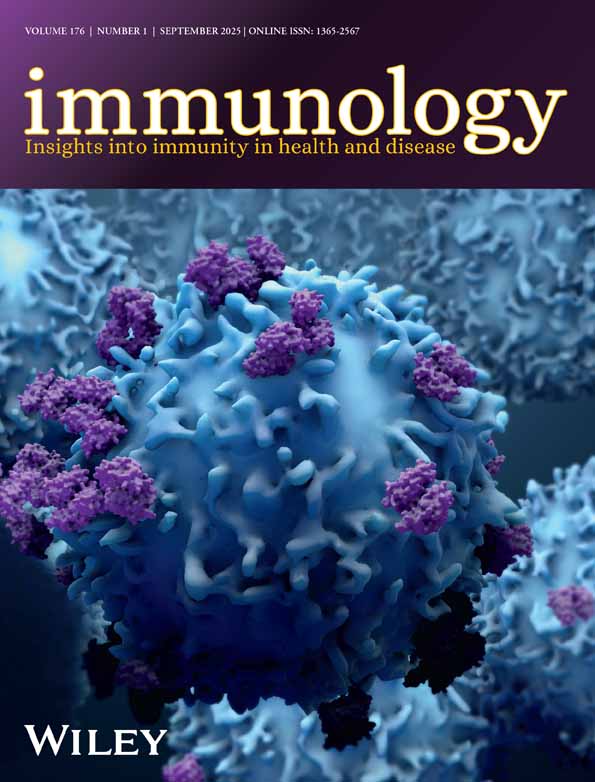Expression of both B7-1 and CD28 contributes to the IL-2 responsiveness of CTLL-2 cells
Abstract
The CTLL-2 bioassay is used frequently to determine interleukin-2 (IL-2) concentrations in experimental samples, including samples that contain reagents which affect the CD28–B7 interaction. We therefore evaluated whether the CD28–B7 pathway plays a role in the growth of CTLL-2 cells. Flow cytometry demonstrated that CTLL-2 cells express both CD28 and B7-1. CTLA4–immunoglobulin (CTLA4-Ig) inhibited the growth of CTLL-2 cells over a range of IL-2 concentrations, suggesting that the CD28–B7 interaction plays an important role in the growth of CTLL-2 cells. Anti-B7-1 antibody also inhibited CTLL-2 proliferation at all concentrations of IL-2. These results indicate that the CTLL-2 bioassay may not be a reliable means of determining IL-2 levels in experimental samples containing reagents that affect the CD28–B7 interaction. They also suggest that co-expression of CD28 and B7 may contribute to the growth of malignant T cells.




